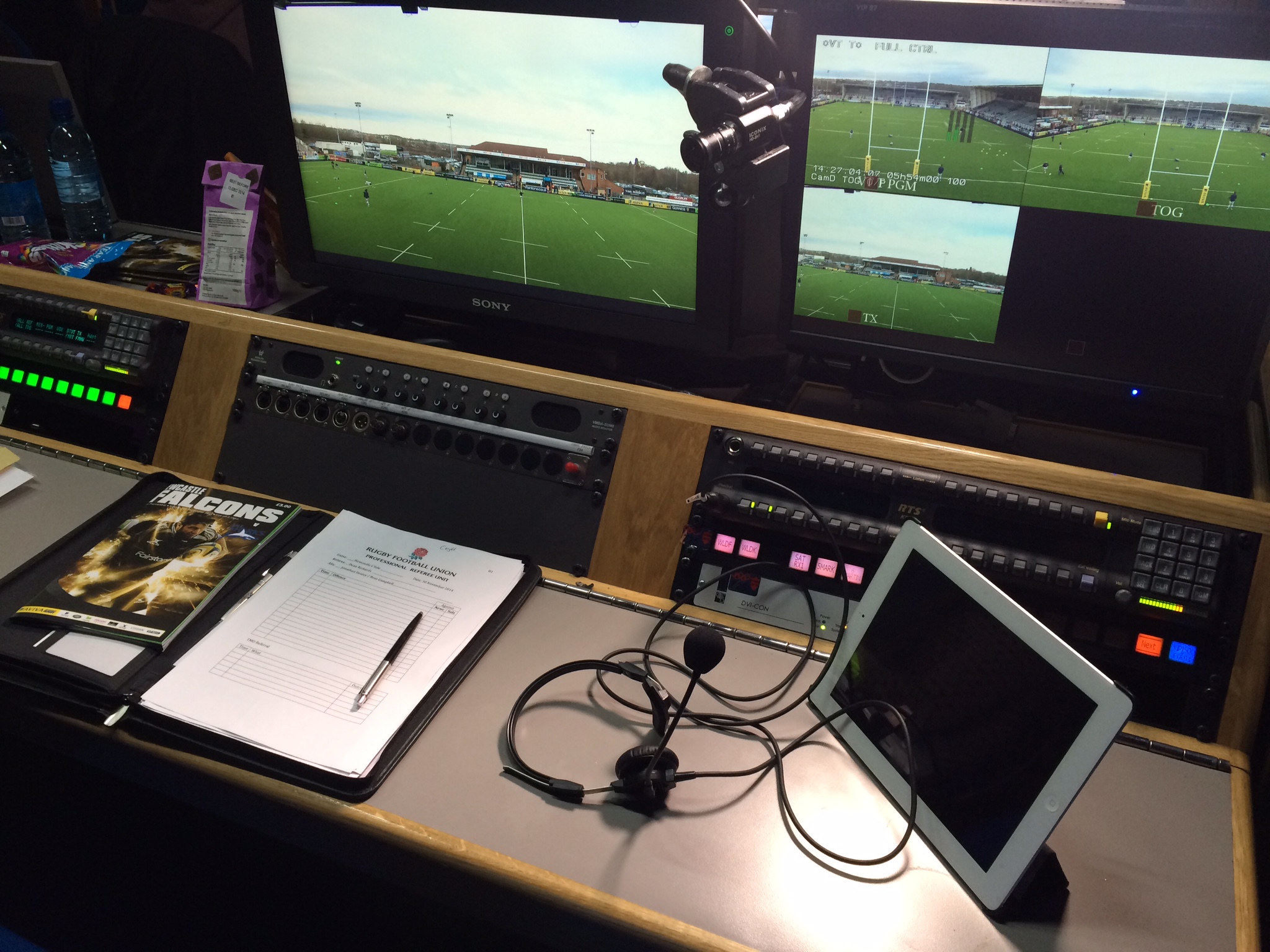Laws must assist TMOs credibility
- 941

Laws must assist TMOs credibility
Whilst the Television Match Official has come under increased scrutiny due
to the additional time it seems to be taking to come to conclusive decisions,
it cannot be forgotten that this role was once something many in rugby
demanded.
The law changes brought about in 2001 introduced us to the TMO and thirteen
years later, this season is only the second in which there has been one at
every match in the top domestic English competition.
As part of a refereeing team of four, Keith Lewis is regularly appointed as a TMO for Aviva Premiership matches. His week begins by looking at all of the previous week's TMO clips to see what calls are being made and how they are being made.
Lewis says, “We try and be pretty clear and open in the conversations we're having so that it's better for us a team but also we have an audience watching aswell, so we're using words that people will understand while trying to get the right decision.”
The need to review and receive feedback is critical to maintain consistency across the sport and this is present via a global system where match officials have access to clips, data and a 360 degree feedback process.
Lewis explains, “We have an adult conversation on the system that says, 'this is what my thinking was' or 'this was my approach' or 'how could we have made a better decision or a clearer decision' or to justify a decision we made. At the end of it, that is then signed off and is accessible by the clubs – there's no secrecy in there. So if we make mistakes it goes on there, if we're being challenged over things and we've got a view then we make sure it's clear there. It's a development tool and we operate as a team of four.”
On matchdays, the TMO is on site two hours ahead of the game and the majority of preparation is to ensure that there is synchronicity across the officials. The referee will instruct his assistants, including the TMO, as to what he will be looking for. The whole team of four will often also join the referee in his pre-match chat with the teams so that, for example, the instructions and notes given to the front rows have been heard by all ahead of any whistle being blown.
The TMO will then make his way to the television truck, which depending on whether the game is being broadcast live, could vary. If the game is live, there will most likely be five or six technical staff alongside the TMO and when a referral is made, the match commentary is cut and the TMO must liase with the production team to have access to the relevant clips. In a non-live game, there is generally just one producer controlling the images and the job is often slightly easier as there is less distraction. Concentrating on every detail of the match is clearly one of the challenges.
Lewis admits, “Concentration is one thing. It's sometimes quite difficult to watch a game intently from a TV truck. If you think about your experience as a viewer, you might flit in and out of it, you're not concentrating all the time. If we're sitting in a truck and there's live production going on that concentration issue is crucial. Then it's just being alert to things – which is where my being around the game pre-match is important, so you get a feel for it.”
The law allows a TMO to instigate a conversation with the referee for serious foul play. Otherwise their role is as a reference for the on-field referee when required. Lewis illustrates, “The protocol and the guidance that we're given is that if we're coming in for something on foul play, it's going to be a yellow card at least – it's for serious foul play. We're not there as a sort of extra teacher in the room unless there is something that is seriously game changing and we have a credibility issue.”
This credibility issue is a fine line. A week before the last Premiership final, a protocol change allowed Graham Hughes, the man in the truck that day, to intervene and call the forward pass that denied Saracens' Owen Farrell a try. He did not intervene on a speculative chuck from Luther Burrell in the same match but this may be due to the positioning of the on-field team.
The TMO must not only observe the play itself but on questioning their decision to intervene on anything 'game changing', Lewis explains that the presence of the referee and his assistants must also be taken into account. He says, “If the referees are in position, it's their call. Part of my checking if I'm seeing something from the TV screen is 'where is the referee and where is the AR?'. If they're there, we're not coming in – camera angles can be deceptive. We're looking for clear and obvious.”
The words 'clear and obvious' are the buzzwords of the lawmakers but this element is key when you consider that some replays in today's game seem to be requiring several angles to decipher whether foul play has occurred – so how clear and obvious was it exactly? Lewis is keen to reassure that this is something the officials are keen to move away from.
For some viewers the debate and/or drama of the TMO referral is an enjoyable element of theatre but if the law is asking them to look after the credibility of our game we must ensure that their roles have been suitably and uniformly defined to make them credible too.











